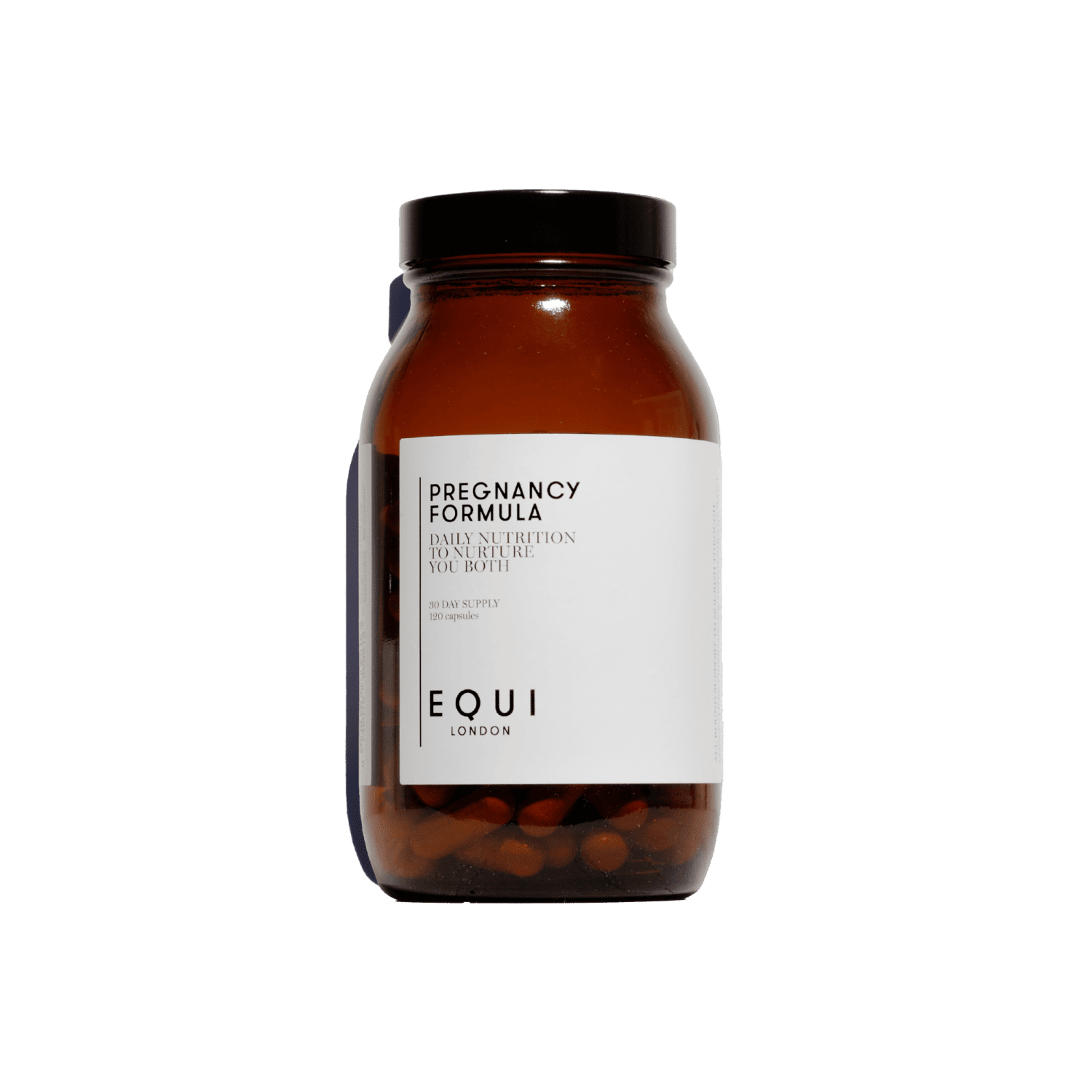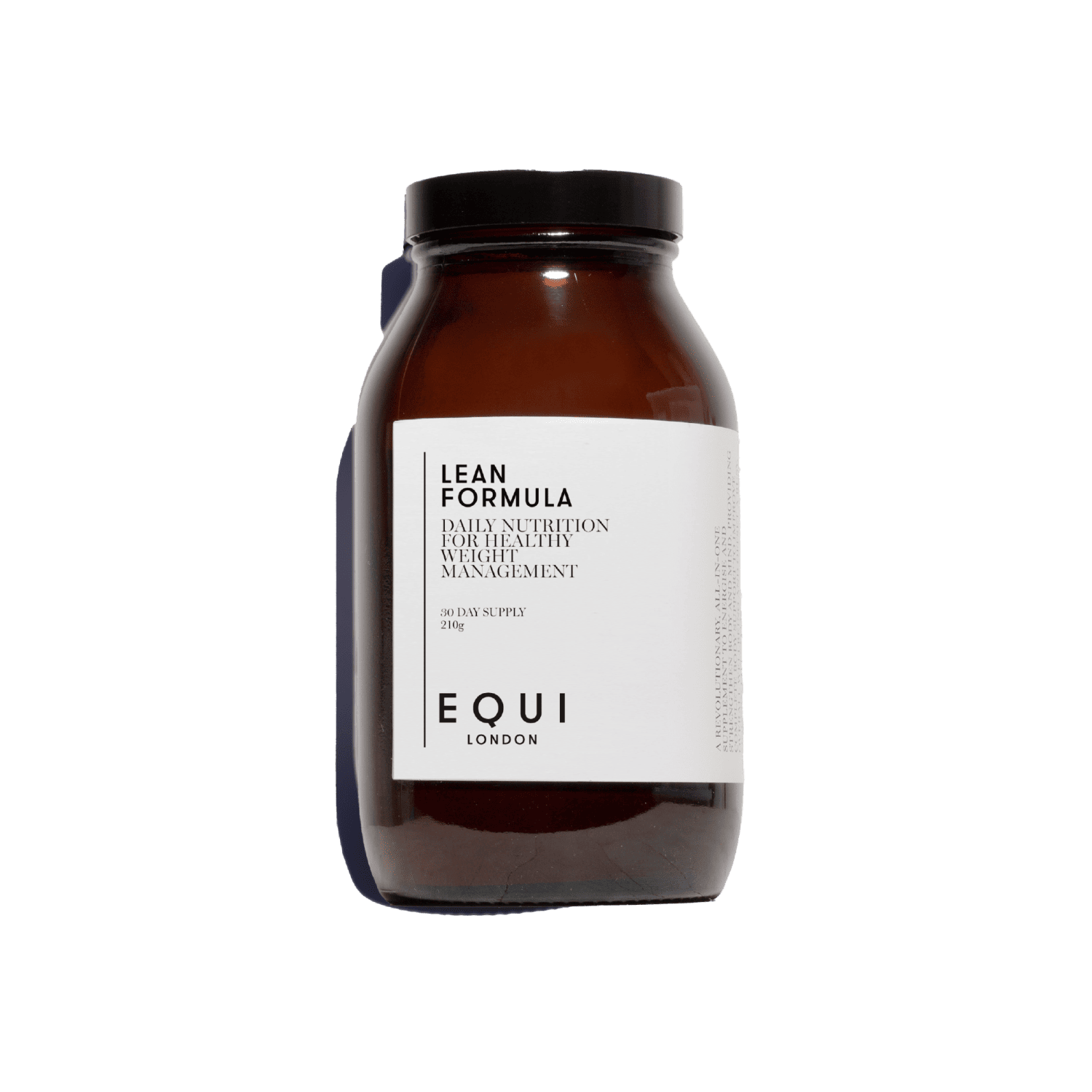
Whilst many of us turn to supplements to fill nutritional gaps left by our modern diets and hectic lifestyles, effective supplementation is laden with complexities and misconceptions. This means that making the right choice for your health can often feel confusing. One of the most significant challenges is finding products that truly address all of our nutritional needs. Often, supplements on the market don't quite hit the mark, missing out on lesser-known nutrients like choline, selenium, molybdenum and chromium. Each of these plays a pivotal role in our overall health, from supporting brain function and metabolism to bolstering our immune system. The absence of these crucial elements in a supplement regimen can leave significant gaps in our nutritional profile, impacting our health in the long run. Another layer to this complex scenario is the delicate balance of nutrient dosages. Striking the right balance is crucial; too little might render the supplement ineffective, while too much could lead to other issues. This balancing act is critical for achieving the desired health benefits without overloading the body with unnecessary or potentially harmful levels of certain nutrients. Beyond just the range of nutrients, the effectiveness of a supplement hinges heavily on the bioavailability of its ingredients. It's not just about what's in your supplement, but how well your body can absorb and utilise these nutrients. For instance, many supplements use the synthetic form of folate (vitamin B9), folic acid, which is not as readily utilised by the body compared to its active form. Similarly, the form of minerals like magnesium can greatly influence their absorption and effectiveness. This nuance in supplement composition is often overlooked, leading to less than optimal outcomes despite regular intake.
The integrity of a supplement extends beyond its active ingredients. Often, what's not on the label is just as important as what is. Many supplements contain fillers or additives, like talc, that at best do nothing for your health and at worst can be detrimental. Understanding the significance of a clean, transparent label is crucial in selecting a supplement that's truly beneficial and safe. Lastly, the concept of nutrient synergy plays a significant role in the effectiveness of a supplement. Certain nutrients, when combined, enhance each other's absorption and effectiveness, like vitamin C and iron, or vitamin D and K2. This interplay is a critical aspect of a well-formulated supplement but is frequently missed in standard products. In today’s blog, we aim to unravel these complexities, guiding you towards a more informed and strategic approach to supplementation. Whether you’re a seasoned user or just starting your health journey, understanding these key factors will empower you to make choices that genuinely support and enhance your health.
1. They Aren’t Comprehensive
For optimal health, dietary supplements play a crucial role in filling nutritional gaps. However, a common pitfall in many supplement formulations is their lack of comprehensiveness. Often, essential yet lesser-known nutrients like choline, selenium, molybdenum, and chromium are overlooked. The absence of these nutrients can have significant implications for overall health. For example, choline is vital for liver function, brain development, and nerve function. It plays a crucial role in lipid metabolism and is essential for the creation of acetylcholine, a neurotransmitter involved in memory and muscle control. A deficiency in choline can lead to health issues, with research highlighting the importance of choline in preventing fatty liver disease and other metabolic conditions (1). During pregnancy, choline needs increase considerably, yet many high street pregnancy supplements do not include this vital nutrient. However, you can rely on EQUI as we have included choline in each Formula. Next, selenium is crucial for the proper functioning of the immune system and plays a key role in metabolism. It's a powerful antioxidant that helps combat oxidative stress and inflammation in the body. Low selenium levels are linked to a higher risk of thyroid dysfunction and compromised immune function. Studies emphasise selenium’s role in protecting against thyroid disease (2). Lesser-known nutrient molybdenum is a trace element that acts as a cofactor for several important enzymes, which are crucial for detoxification processes in the body. Deficiencies, though rare, can disrupt these enzymatic reactions, leading to metabolic disturbances. Adequate molybdenum levels are essential for proper sulphur amino acid metabolism, which is why we have included this in each Formula. Finally, chromium is important for insulin function and is involved in carbohydrate, fat, and protein metabolism. It helps maintain normal blood sugar levels and is particularly beneficial for individuals with insulin resistance or diabetes. Given the vital roles these nutrients play, it is important for supplement formulations to be comprehensive, ensuring that they not only meet the basic requirements of vitamins and minerals but also include these lesser-known but equally important nutrients. EQUI have included these lesser-known nutrients, ensuring that any nutritional gaps are met with adequate supplementation.
2. Poor Bioavailability
Bioavailability is a critical concept when it comes to supplements. It refers to the proportion of a nutrient that is absorbed and utilised by the body. This factor is crucial because even if a supplement contains a high level of a particular nutrient, it may not be beneficial if the body cannot effectively absorb and use it. The form of the nutrient in a supplement plays a pivotal role in determining its bioavailability. A prime example is the comparison between folic acid and methylfolate. Folic acid is the synthetic form of folate, a B-vitamin, and is commonly used in supplements and fortified foods. However, not everyone can efficiently convert folic acid to its active form, L-methylfolate, due to genetic variations in the MTHFR gene. Methylfolate is the bioactive form of folate that the body can immediately use without conversion. Research backs up the fact that methylfolate is more effective in increasing plasma folate levels compared to folic acid, making it a preferable choice for supplementation (3). Similarly, the bioavailability of magnesium varies depending on its form. Magnesium citrate and oxide are common forms found in supplements, but they differ in terms of absorption and gastrointestinal tolerance. Magnesium oxide is less bioavailable and can cause gastrointestinal issues and citrate can encourage bowel movements. On the other hand, magnesium glycinate, a chelated form of magnesium, is more readily absorbed and gentler on the stomach. Organic magnesium salts, like magnesium glycinate, are more bioavailable than inorganic forms (4). At EQUI, we have not only selected the most bioavailable forms of nutrients we have opted for food forms of some nutrients to maximise bioavailability. For instance, we use kelp as a natural source of iodine. Kelp, being a whole food, provides iodine in a form that the body can easily recognise and absorb. Similarly, acerola cherry for vitamin C is chosen due to its high bioavailability. It is one of the richest natural sources of vitamin C and is readily absorbed by the body, which is backed up by research (5). Using food forms for some nutrients not only ensures better absorption but also often provides additional health benefits. Whole food sources come with a range of other naturally occurring nutrients that can work synergistically, enhancing the overall nutritional benefit. So, the bioavailability of nutrients in supplements is a key factor in determining their effectiveness. Supplements like our Formulas that utilise bioavailable forms, such as methylfolate and magnesium glycinate, are more effective. Moreover, incorporating some nutrients in their natural, food-based form, as we do, can further enhance absorption, and provide additional health benefits.
3. Incorrect Dosages
When it comes to supplements, more is not always better. Correct dosage is a critical factor in supplement effectiveness and safety. Both excess and deficiency of key nutrients can be problematic, emphasising the need for balanced formulations that align with recommended dietary allowances (RDAs) and individual needs, dependant on life stage or other factors such as pregnancy. Excessive intake of certain nutrients can have detrimental effects. Take calcium, for example. It is essential for strong bones and teeth, muscle function, nerve signalling, and blood clotting. However, excessive calcium supplementation can be problematic. It may lead to hypercalcemia – an abnormally high level of calcium in the blood, which can cause kidney stones, interfere with heart, and brain functions, and affect the absorption of other minerals like iron and zinc. The balance is crucial; while adequate calcium is necessary for health, excessive intake through supplementation, especially without the balancing effect of other nutrients like vitamin D and magnesium, can lead to issues.
On the other hand, insufficient intake of certain nutrients can be just as problematic. Vitamin D, essential for bone health, immune function, and inflammation regulation, is a common deficiency, particularly in regions with limited sun exposure, such as here in the UK. A deficiency in vitamin D can lead to bone disorders like osteoporosis and an increased risk of infections (6). The recommended daily intake of vitamin D is 400IU, yet many supplements fall short of this. However, EQUI Formulas each hit this RDA, with Pregnancy Formula containing 1000IU to meet the additional needs during pregnancy. Vitamin A is another nutrient where balance is key. It is vital for vision, immune function, and skin health. A deficiency can lead to vision problems and impaired immune response. However, excess vitamin A, particularly in its retinoid form, can be toxic, causing liver damage and increased risk of osteoporosis. EQUI Formulas contain vitamin A in d.salina form, derived from a species of microalgae, which is beneficial due to its natural, bioavailable composition. It provides a mix of carotenoids resembling those found in fruits and vegetables, ensuring better absorption and utilisation by the body compared to synthetic forms, enhancing its efficacy and safety.
When it comes to B vitamins such as B12, balance is key. For example, whilst a deficiency can lead to anaemia and neurological issues, excessive B12 intake can also be problematic (7). This underscores the importance of not exceeding the necessary dosage, particularly in supplement form. The key to effective supplementation is balanced formulations that provide nutrients in amounts aligning with RDAs and individual health requirements. This approach ensures that the body receives what it needs for optimal functioning without the risk of overloading or under-supplying critical nutrients.
Not only does each Formula contain an advanced multivitamin and mineral complex of female-specific nutritional compounds, but we have also ensured they are balanced and tailored to meet individual health needs. Each Formula contains the optimal dosage of nutrients for health and well-being, avoid excessive or insufficient nutrient intake. All you need to do is find your Formula – take our quiz here.
4. Unwanted Fillers and Additives
It's not just the active ingredients that deserve attention but also the often-overlooked fillers and additives. These substances, ranging from bulking agents and tablet coatings to colours and anti-caking agents, can have significant implications for health and wellness. Understanding their roles and potential impacts is crucial for making informed choices about supplements. Common bulking agents include talc, calcium carbonate, and microcrystalline cellulose. These are used to increase the volume of a supplement, making it easier to handle and process. However, their impact on health can be questionable. Tablet coatings like polydextrose, hydroxypropylmethylcellulose, and calcium carbonate serve to protect the tablet, control its dissolution, and improve its appearance. While generally considered safe, some individuals might have sensitivities or allergic reactions to these compounds. The use of colours in supplements is primarily for aesthetic purposes, but these additives can pose risks, especially for individuals with sensitivities. Finally, silicon dioxide and magnesium stearate are commonly used as anti-caking agents to prevent ingredients from clumping together. The importance of choosing supplements with clean labels – free from unnecessary fillers, additives, and potentially harmful substances – becomes evident. EQUI Formulas focus on the purest of ingredients, ensuring that what you consume contributes to your health, not detracts from it. While fillers and additives in supplements might seem inconsequential, they can have some health implications.
5. Lacking Complementary Nutrients
The concept of nutrient synergy is key when it comes to supplements. This refers to how certain vitamins and minerals, when consumed together, can enhance each other's absorption and efficacy, leading to optimal health benefits. This is critical in supplement formulations, as it ensures that the body derives maximum benefit from each nutrient. One of the most well-known examples of nutrient synergy is between vitamin C and iron. Vitamin C significantly enhances the absorption of iron, particularly non-heme iron, which is found in plant-based foods. Research highlights that vitamin C enhances non-heme iron absorption by reducing it to a more soluble ferrous form, making it more bioavailable (8). This interaction highlights the importance of including vitamin C-rich foods or supplements alongside iron sources to maximise iron absorption, as EQUI Formulas do.
Another critical interaction occurs between vitamin D and K2. Vitamin D aids in the absorption of calcium, while vitamin K2 helps in the regulation of where calcium ends up in the body (9). This synergy underlines the importance of combining these vitamins in supplement formulations for bone and cardiovascular health. Magnesium and vitamin D also have a synergistic relationship. Magnesium is essential for the activation of vitamin D into its active form in the body. Without sufficient magnesium, vitamin D remains inactive and ineffective, regardless of its intake levels. In fact, a study found that magnesium supplementation effectively increases vitamin D levels in people with deficient levels and decreases it in cases of excess (10). This interaction underscores the need for a balanced intake of both nutrients for optimal health benefits.
Finally, B vitamins, particularly B6, B9 (folate), and B12, work synergistically to support metabolic processes, including homocysteine metabolism. Imbalances in these vitamins can lead to elevated homocysteine levels, which can be problematic, highlighting the importance of their combined presence in supplements. So, understanding the synergy between various nutrients is crucial in both diet and supplement formulation. The interactions between vitamin C and iron, vitamin D and K2, magnesium and vitamin D, and the B vitamins are prime examples of how nutrient synergy can significantly impact health outcomes. Supplement formulations such as EQUI Formulas that consider these interactions can provide more effective support for health than those focusing on single nutrients.
How EQUI Hits The Mark
EQUI stands out in the supplement market for our comprehensive and functional medicine approach. Rooted in the principles of holistic health, each Formula is meticulously crafted to target the ten crucial systems of the body, ensuring balanced support and optimal functioning. This unique approach, combined with an advanced multivitamin and mineral complex tailored for women, makes EQUI Formulas a benchmark in personalised nutrition. Rather than merely addressing symptoms, EQUI Formulas are designed to target the underlying causes of health issues. This approach ensures that each Formula supports the body's systems comprehensively, including hormonal balance, skin health, gut health and digestion, detoxification, brain and nerve function, reproductive function, energy levels, the musculoskeletal system, immune function, and cardiovascular health. For hormonal balance, ingredients are chosen for their ability to regulate hormonal activity naturally. For skin health, antioxidants and vitamins that promote collagen production and skin hydration such as collagen peptides, vitamin C and hyaluronic acid are included. Gut health and digestion are supported with probiotics and digestive enzymes, while ingredients for detoxification aid in eliminating toxins from the body. Brain and nerve function is supported with nutrients that enhance cognitive function and nerve health, including adaptogens. Reproductive function benefits from nutrients that support fertility and pregnancy. Energy-boosting ingredients are included to combat fatigue and enhance vitality, such as iron, Iodine and a B-complex. The musculoskeletal system is supported with minerals essential for bone health and muscle function including calcium, K2 and vitamin D. Immune-boosting ingredients including zinc help fortify the body’s natural defences, and cardiovascular health is supported with nutrients that promote heart health and circulation.
Central to each EQUI Formula is an advanced multivitamin and mineral complex, specifically designed with a female-specific spectrum of bioavailable vitamins and minerals. This ensures that women receive the essential nutrients they need in the most absorbable forms. The bioavailability of these nutrients is key to their effectiveness, as it ensures that the body can easily absorb and utilise them. What’s more, each EQUI Formula is tailored to meet specific health goals, whether it's maintaining radiant skin, achieving overall wellness, navigating menopause, or supporting fertility and pregnancy. This targeted approach allows for focused support, ensuring that women receive the nutrients most beneficial for their health needs.
EQUI Formulas epitomise the essence of functional medicine, providing comprehensive, holistic support for the body’s various systems. By combining an advanced multivitamin and mineral complex with other essential nutrients, each Formula is designed to meet the unique health needs of women at different stages of life. The focus on bioavailability, combined with the targeting of specific body systems, makes EQUI an exemplary choice for those seeking balanced, effective nutritional support. Purchase here.
Disclaimer: All of the information on this website is provided for general information only, it should not be treated as a substitute for the medical advice of your own doctor or any other health care professional providing personalised nutrition or lifestyle advice. If you have any concerns about your general health, you should contact your local health care provider. No one diet or supplement regime works for everyone and you should always seek help from a GP and registered health expert before making changes to your diet, or before introducing any supplements. This is especially important when pregnant.
References
-
Bekdash RA. (2016). Choline and the Brain: An Epigenetic Perspective. Adv Neurobiol. 12, pp. 381-99.
-
Rayman, M.P., (2012). Selenium and human health. The Lancet, 379(9822), pp. 1256-1268.
-
Scaglione, F., and Panzavolta, G., (2014). Folate, folic acid and 5-methyltetrahydrofolate are not the same thing. Xenobiotica, 44(5), pp.480-488.
-
Coudray, C., Rambeau, M., Feillet-Coudray, C., Gueux, E., Tressol, J.C., Mazur, A., and Rayssiguier, Y., (2005). Study of magnesium bioavailability from ten organic and inorganic Mg salts in Mg-depleted rats using a stable isotope approach. Magnesium Research, 18(4), pp.215-223.
-
Uchida, E., Kondo, Y., Amano, A., Aizawa, S., Hanamura, T., Aoki, H., Nagamine, K., Koizumi, T., Maruyama, N., and Ishigami, A., (2011). Absorption and excretion of ascorbic acid alone and in acerola (Malpighia emarginata) juice: comparison in healthy Japanese subjects. Biological & Pharmaceutical Bulletin, 34(11), pp.1744-1747.
-
Holick, M.F., (2007). Vitamin D deficiency. New England Journal of Medicine, 357(3), pp. 266-281.
-
Obeid, R., Fedosov, S.N., and Nexo, E., (2015). Cobalamin coenzyme forms are not likely to be superior to cyano- and hydroxyl-cobalamin in prevention or treatment of cobalamin deficiency. Molecular Nutrition & Food Research, 59(7), pp. 1364-1372.
-
Teucher, B., Olivares, M., and Cori, H., (2004). Enhancers of iron absorption: ascorbic acid and other organic acids. International Journal for Vitamin and Nutrition Research, 74(6), pp. 403-419.
-
Maresz, K., (2015). Proper calcium use: Vitamin K2 as a promoter of bone and cardiovascular health. Integrative Medicine: A Clinician's Journal, 14(1), pp. 34-39.
-
Uwitonze, A.M., and Razzaque, M.S., (2018). Role of magnesium in vitamin D activation and function. The Journal of the American Osteopathic Association, 118(3), pp. 181-189.




